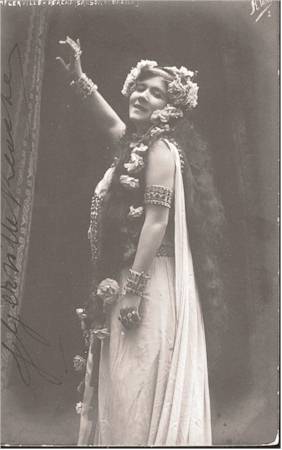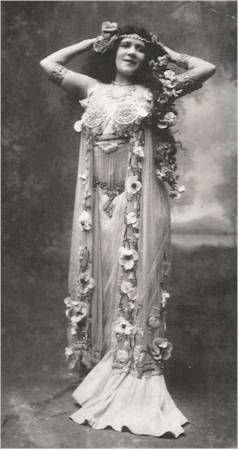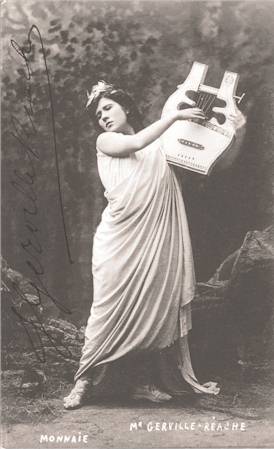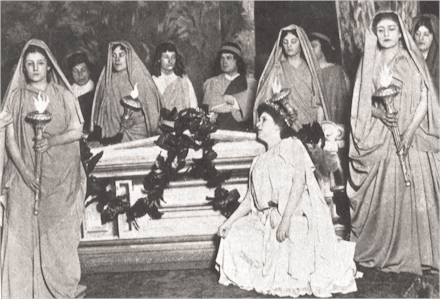http://www.cantabile-subito.de/Contraltos/Gerville-Reache/gerville-reache.htm
Il nostro sito archivio
Il blog precedente 2009-2011
-
Articoli recenti
- Against interpretation and other essays Susan Sontag openlibrary
- Alla ricerca di un senso a questi giorni… by alzogliocchiversoilcielo.blog
- Cuba vigila ma non si chiude. E aiuta gli altri by ilmanifesto
- Sul Campo Vergine Il mostro bussa alla porta – di Mike Davis – by francosenia.blog
- Raoul Vaneigem: La rinascita dell’umano è la sola crescita che ci conviene: scarica il documento
Archivi
- aprile 2020
- marzo 2020
- febbraio 2020
- gennaio 2020
- dicembre 2019
- novembre 2019
- ottobre 2019
- settembre 2019
- agosto 2019
- luglio 2019
- giugno 2019
- maggio 2019
- aprile 2019
- marzo 2019
- febbraio 2019
- gennaio 2019
- dicembre 2018
- novembre 2018
- ottobre 2018
- settembre 2018
- agosto 2018
- luglio 2018
- giugno 2018
- maggio 2018
- aprile 2018
- marzo 2018
- febbraio 2018
- gennaio 2018
- dicembre 2017
- novembre 2017
- ottobre 2017
- settembre 2017
- agosto 2017
- luglio 2017
- giugno 2017
- maggio 2017
- aprile 2017
- marzo 2017
- febbraio 2017
- gennaio 2017
- dicembre 2016
- novembre 2016
- ottobre 2016
- settembre 2016
- agosto 2016
- luglio 2016
- giugno 2016
- maggio 2016
- aprile 2016
- marzo 2016
- febbraio 2016
- gennaio 2016
- dicembre 2015
- novembre 2015
- ottobre 2015
- settembre 2015
- agosto 2015
- luglio 2015
- giugno 2015
- maggio 2015
- aprile 2015
- marzo 2015
- febbraio 2015
- gennaio 2015
- dicembre 2014
- novembre 2014
- ottobre 2014
- settembre 2014
- agosto 2014
- luglio 2014
- giugno 2014
- maggio 2014
- aprile 2014
- marzo 2014
- febbraio 2014
- gennaio 2014
- dicembre 2013
- novembre 2013
- ottobre 2013
- settembre 2013
- agosto 2013
- luglio 2013
- giugno 2013
- maggio 2013
- aprile 2013
- marzo 2013
- febbraio 2013
- gennaio 2013
- dicembre 2012
- novembre 2012
- ottobre 2012
- settembre 2012
- agosto 2012
- luglio 2012
- giugno 2012
- maggio 2012
- aprile 2012
- marzo 2012
- febbraio 2012
- gennaio 2012
- dicembre 2011
- novembre 2011
Categorie
- 1 MAGGIO (77)
- 14 november 2012 (25)
- 2 giiugno (4)
- 25 aprile (41)
- 8 MARZO (98)
- a b c lotta di classe (416)
- ala faccia de o cazz! (13)
- ammazza quannto siamo fessi (7)
- amore (413)
- annateve a ripone! (14)
- antifascismo (582)
- auguri 2013 (16)
- Bertolt Brecht (87)
- buon 2012 (3)
- buona notte ai suonati e sonati (7)
- cabala del cavallo pegaso (366)
- cabala del cavaòòp pegaso (31)
- campagna pro vaccini (7)
- canta napoli (152)
- canto (2)
- canto per me (523)
- canto per tutti (49)
- canzoni Arbeit macht frei (22)
- carcere repressione (1.030)
- ce so rimasti li santissimi….. (9)
- cinema muto (92)
- compagnitudine (75)
- concerto capodanno (17)
- confessione (66)
- consigli per acquisto (19)
- Contrappunto bestiale (3)
- cultura (6.186)
- cultura zingara (28)
- dante all'indice (1)
- DEL GRANDE METODO (113)
- documenti politici (1.558)
- EFFETTI COLLATERALI (888)
- Enzo Del Re (9)
- epigrafe al sistema capitale (71)
- euroasia (31)
- fanculo tutti (245)
- fidelio (26)
- fumettistica (105)
- geografia (9)
- Giacomo Leopardi (83)
- Glenn Gould (12)
- i rom e l'europa (56)
- il film più dimenticato che c'è (44)
- inchieste (148)
- infiltrati e peggio (9)
- io non voto (46)
- islam (292)
- June 20t (4)
- kafka (34)
- la canzone che dovrebbe essere (20)
- la canzone più vera che c'è! (115)
- la città del sole (2)
- LA MEGLIO CANZONE AL MONDO (78)
- la monaca amica mia (95)
- la strage è di Stato (102)
- la violenta non violenza (6)
- le meglio di facebook (70)
- Lev N. Tolstòj (29)
- luigi tenco (7)
- mansoor hekmat (32)
- maria D'oronzo (7)
- Marx e C. (324)
- MAY ! 2012 (13)
- MAY 1 2012 (50)
- MAY 1 2013 (30)
- memoria (1.295)
- mettece na pezza… (13)
- mi piace la corrida (12)
- migranti :il viaggio infinito (2)
- musica (4.966)
- nave di lazzaro (614)
- nino d'angelo (4)
- non lavoro (201)
- non più bambini nei cassonetti (1)
- onde di Rayleigh dette anche …tuono dal suolo (31)
- ordinario crisi (442)
- ordinario pezzi di merda (10)
- ORDINARIO STORIA D'ITALIA (292)
- ordinario storia di tutti i paesi (41)
- overamente (182)
- parole in libertà (30)
- pittrice (2)
- problema Berlusconi (2)
- produzioni dal basso (50)
- radio cane (40)
- ricette crisi (30)
- Sabotage (21)
- saluto a compagne/i (62)
- satirical notes (275)
- schiavitù e capitalismo (1.983)
- scienza (27)
- SE QUESTO E' UN UOMO SE QUESTA E' UNA DONNA (11)
- Senza categoria (232)
- Simon's Cat (12)
- simonetta Jaramillo (51)
- sono cazi acidi sono (183)
- speciale archeologia (62)
- speciale crisi (1.201)
- speciale euroasia (24)
- speciale femministe (133)
- speciale gotico (67)
- speciale lirica (289)
- speciale morti di sonno (69)
- speciale musical (36)
- speciale scienza (438)
- speciale vulcano (122)
- speciale western (143)
- sperammo che è o vero (1)
- sport (128)
- stranezze mie (27)
- Teoria e Prassi (51)
- Tommaso Campanella (37)
- ve l'avevamo detto!!! (53)
Tag
- 1 MAGGIO
- 8 MARZO
- a b c lotta di classe
- AMORE
- antifascismo
- Bertolt Brecht
- cabala del cavallo pegaso
- canta napoli
- canto per me
- carcere repressione
- cinema muto
- cultura
- cultura musica
- DEL GRANDE METODO
- documenti politici
- effetti collaterali
- epigrafe al sistema capitale
- fanculo tutti
- fumettistica
- Giacomo Leopardi
- inchieste
- islam
- la canzone più vera che c'è!
- LA MEGLIO CANZONE AL MONDO
- la monaca amica mia
- la strage è di Stato
- Marx e C.
- memoria
- musica
- nave di lazzaro
- non lavoro
- ordinario crisi
- ordinario storia d'italia
- OVERAMENTE
- O VERAMENTE!
- satirical notes
- schiavitù e capitalismo
- sono cazzi acidi sono
- speciale crisi
- speciale femministe
- speciale lirica
- speciale scienza
- speciale vulcano
- speciale western
- sport
Meta




